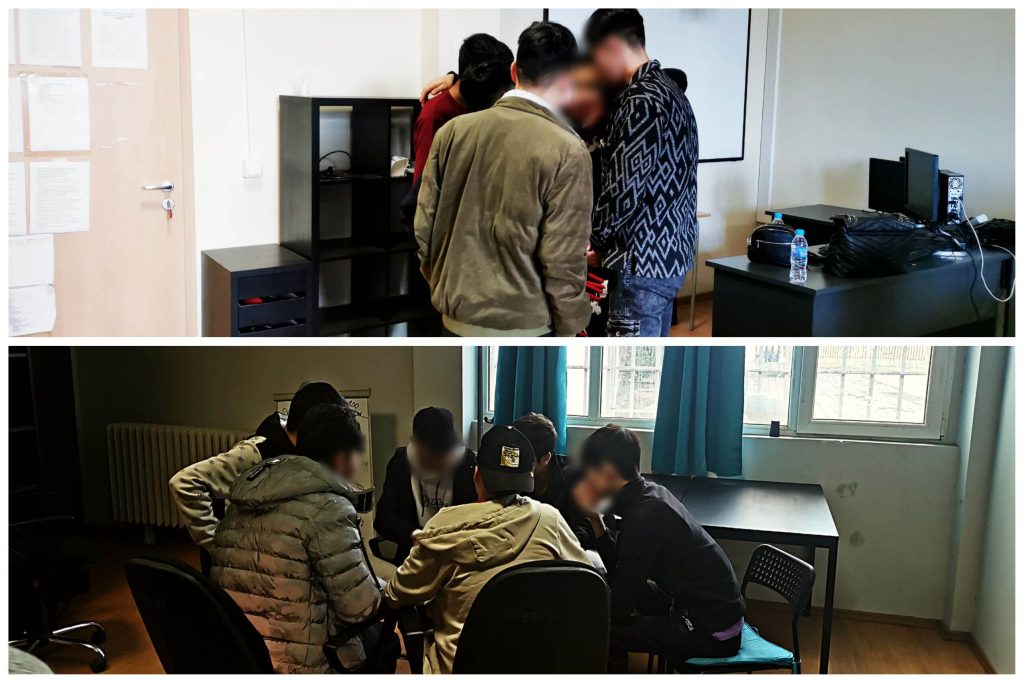The drama therapy was implemented with the support of an IOM (The International Organization for Migration) psychologist. The topic was chosen by the UAM – to tell the story and motives of their journey from Afghanistan to Europe. The psychologist led the drama therapy sessions while the NBU team oversaw the co-creation process, the script and filming processes. The two to three hour sessions were organised weekly during February and March 2023. In a circle, everyone, including the implementing team, shared their experiences on a specific topic, first – selected by the team and later suggested by the UAM. The topics ranged from memories of deciding to leave, the journey to Bulgaria, their dreams, hopes, fears, cultural differences, and curiosity towards the other. The notes from the sessions were turned into a script that was consulted with the UAM. The final three sessions were dedicated to the shooting of the film and the closing meeting.
Safety Zone for UAM in the Registration and Reception Centre (RRC) in Sofia (Voenna Rampa)
Sofia, Bulgaria
Impact and successes
Our experience testifies to the therapeutic potential of art-based workshops. The co-creation format enables the participants to choose their final aim and be committed to the process. The latter is an important incentive for the implementation team. The UAM initially expressed doubt about the successful implementation. The process empowered the UAM and helped improve their social skills and overcome the uncertainty in their own voices, needs and dreams. All the UAM noted that their stay in the RRC improved after the start of the process and reported gaining more control over their lives.
Lessons, learning and recommendations
The systematic implementation, alongside the team’s dedication, was key for the reciprocal attitude of the UAM. The small group also helped facilitate the possibility of a strong in-group dynamic. Due to the transitory nature of Bulgaria and the absence of motivation to learn Bulgarian or go to school, the art-based approach engaged the UAM and helped them identify self-expression as a tool to approach their future lives in unfamiliar cultural surroundings. Furthermore, the IOM cultural mediator was a leading figure in the process, whose support was invaluable in establishing trust between the participants and the team.
References:
- The article: “Interactive processes and practices contributing to the mental health of unaccompanied Afghan refugee children”.
- Христова, М., Райкова, А., Николова, Т. 2023. Интерактивни процеси и практики, допринасящи за психичното здраве на непридружените деца бежанци от Афганистан. Бежанците днес и утре: Академичен бюлетин 13: 17 – 28. [Hristova, M., Raykova, A., Nikolova, T. 2023. Interactive processes and practices contributing to the mental health of unaccompanied Afghan refugee children. Refugees today and tomorrow: Academic Bulletin 13: 17 – 28.]
- Hristova, M., Raykova, A. 2023. Unaccompanied Foreign Minors in Bulgaria: In the Limbo between the New and Old Homes. In: Maeva, M., Slavkova, M., Hristova, M. Between the Worlds of Old and New Homes. Vol. 5 of Between the worlds open-access e-collection. (forthcoming).